January 11-16 2021
A review of the main events of the week

Leyla Cheamil, 16.01.2021, 13:00
Romania fights the novel coronavirus
The second stage of the national campaign of vaccination against the novel coronavirus started on Friday in Romania. Head of state Klaus Iohannis took his shot on that same day, in order to mark the beginning of this second stage. The first to be vaccinated are people with a high level of risk: seniors in homes for the elderly, adults over 65, adults with chronic conditions, and people who have essential jobs. The number covered by this could amount to 6 million. In the first stage, which kicked off on December 27, immunization was aimed at workers in health and social work. PM Florin Citu estimates that the pace of immunization would accelerate starting with the second stage, with the aim of immunizing 10 million people by the end of September. About 700,000 cases of infection have been confirmed since the pandemic ensued, and the total number of COVID deaths is over 17,000. As a result, the government, upon request from the National Committee for Emergency Situations, decided to extend the national state of alert by 30 more days. The decision, coming into effect on Thursday, provides for maintaining the restrictions in place for limiting infections, including the obligation to wear a mask in public spaces and a night curfew. Other restrictions that stay in place are bans on rallies, protests, and concerts, as well as rules regarding culture, arts, and athletic events. Religious activities, including masses or collective prayer, are admitted indoors or outdoors upon observance of health rules. Also standing for the next 30 days is the ban on anniversaries or other parties in enclosed or outdoor spaces.
Romanian schools may open by February 8
Romanian president Klaus Iohannis said that many schools would reopen on February 8 if the epidemic doesnt worsen. This date is the beginning of the second semester. The head of state explained that the system would be decentralized, depending on the local level of COVID infections. Klaus Iohannis announced that a final decision would be made on February 2nd, in a new evaluation meeting. Right now classes countrywide are being held online. As for the university system, which is autonomous, the decision to resume in person teaching is to be made by each university.
Salary increases and financial grievances
This week, the government in Bucharest set the base minimum gross wages nationally at 2,300 lei, about 470 Euro, starting on 1 January 2021. This is the three percent increase that was previously announced. The Ministry of Labor specified that they used a formula that takes into account the rate of inflation of 2.2 percent, and the real increase of productivity per capita of 0.8 percent in 2020. According to official data, Romania has 1.4 million employees working on minimum wage, which is a quarter of the total number of employees nationally. The decision passed by the executive also specifies that employees with higher education and at least one year experience in their area of training will maintain their guaranteed base minimum gross wages at 2,350 lei per month, over 480 Euro, not including bonuses. At the same time, employees in police forces, public administration, social work, and prisons have grievances related to their wages. Union members in these sectors protested on Wednesday in front of the Labor Ministry, with similar action in other large cities across the country. They protested the ceiling set by the government on state salaries at the level of December last year. Among their demands are the erasure of inequality in public sector salaries, and the indexation of minimum wages in line with consumer prices. Similar protests were held by unions in healthcare and education, who complain about the freeze on wages in the state sector.
Pensions in Romania in limbo
Romanias Constitutional Court on Wednesday turned down a complaint from the government against the law that provides a 40 percent increase in pensions. The document will now be submitted to the president, who can sign it into law or send it to Parliament for review. The PM, Florin Citu, underlined once again the fact that the present economic environment, gravely affected by the healthcare crisis, has no resources to sustain such a boost. He recalled that pensions went up last year by 14 percent, meaning a budget expenditure of 9 billion lei, over 1.8 billion Euro. However, the budget is being worked on right now, and pensions are still being calculated. The opposition Social Democratic Party said that they can prove the money is available, and demands the increase be applied, in line with the standing law.
Former Romanian premier Calin Popescu Tariceanu accused of corruption
Romanian President Klaus Iohannis approved on Wednesday the request by the Anti-corruption Directorate request to start a criminal investigation against former 2004-2008 PM Calin Popescu Tariceanu. He is suspected of having taken a bribe that amounts to 800,000 dollars while in office as premier. Prosecutors allege that the former head of the executive got the money indirectly from an Austrian company in exchange for passing executive orders to the advantage of said company. Calin Popescu Tariceanu rejects the accusations, and says that the investigation is founded in suppositions that are meant to throw shade on him. Former Social Democratic Party chairman Liviu Dragnea, currently doing time for corruption, is also under criminal investigation in a new case, as announced by anti-corruption prosecutors this week.




























